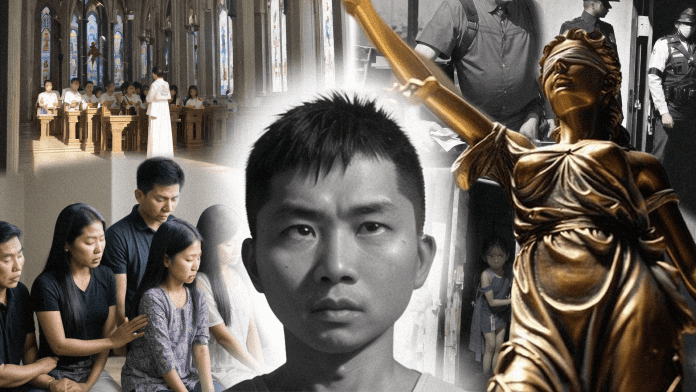By Jose Guillermo – Sunday Punch
Throughout history, humanity has been marked by a struggle between right and wrong, good and evil. It is deeply rooted in mythology, religion, and the collective consciousness of humanity.
In the context of the Philippines, this struggle is not an abstract idea but an everyday reality that subsists the country’s socio-political and religious fabric. As a nation with a rich history of colonialism, revolution, and democracy, the Philippines continuously grapples with questions of morality, governance, and righteousness— issues that, more often than not, are exploited by vested interests to blur the lines between good and evil.
The recent political controversies, corruption scandals, and issues of inequality serve as stark reminders that this battle is very much alive. One such example is the rising authoritarianism in the country against the backdrop of ill-gotten wealth, historical distortion and perennial social injustices. The present social landscape continues to divide the nation, with some seeing the perpetual contradiction between political families as an actual step towards redemption and others as a dangerous step backward. This dichotomy is a representation of the blurred lines between good and evil where narratives are often manipulated to serve narrow personal ends.
The religious environment of the Philippines adds another layer of complexity to this battle. As one of the most predominantly Christian countries in Asia, with over 80% of its population identifying as Roman Catholic, the Philippines is a nation where faith plays an integral role in shaping people’s moral compass. It is not uncommon to see political figures quoting Bible verses or participating in religious rituals to project an image of piety and righteousness.
However, this display of religiosity often contrasts sharply with the actions of some political leaders who are implicated in corruption, abuse of power, or human rights violations. This hypocrisy highlights a conflict between the image of virtue and the reality of vice—an embodiment of the very struggle between good and evil.
For example, the horrid human rights situation in the country is framed as a moral crusade to rid society of its ills. Despite widespread condemnation from human rights organizations, many Filipinos supported, even aided and abetted, this culture of injustice, believing it to be a necessary evil to achieve a greater good: peace and order. This support underscores the complexity of moral judgment, as people wrestle with the question: Can an action deemed evil be justified if it serves a perceived good?
Another issue of recent memory is the Philippine government’s response to the COVID-19 pandemic. While some efforts were commendable, such as the rapid rollout of vaccination programs, especially in the situation of a developing country, other actions were marred by allegations of corruption, inefficiency, and the misuse of public funds. The controversy surrounding the procurement of overpriced medical supplies exposed the greed that often undermines the country’s fight against adversity. In this case, the battle between good and evil plays out not only in the political arena but also in the hearts and minds of ordinary citizens who demand transparency and accountability from their leaders.
At the core of these issues is the struggle for truth. Just as the story of good versus evil is a battle for dominance, the Philippine society is a battleground for truth versus misinformation. Social media, once hailed as a platform for democratizing information, is also now used by some as a tool for spreading ‘fake news,’ distorting historical facts, and manipulating public opinion. This battle for truth is not just a political one, it is a fight for the soul of a nation, where the outcome could determine whether good or evil prevails.
In this struggle, Filipinos often find solace and guidance in their religious faith. Religious teachings emphasize the importance of standing up against injustice, showing compassion to the oppressed, and working toward the common good. Churches, non-governmental organizations, and advocacy groups have often taken on the role of watchdogs, calling out wrongdoings and reminding society of its moral duty.
However, the question remains, ‘are we genuinely living up to the values we profess?’
In a society where religious icons and scriptures are so visible, there is a risk that faith becomes a mere performance, a superficial display that fails to translate into genuine action. When politicians invoke o while engaging in corrupt practices, or when citizens justify their silence in the face of injustice, we are reminded that the battle between good and evil is not just an external conflict but an internal one. It is fought in the decisions we make, the values we uphold, and the courage we summon to confront our own shortcomings.
The real challenge for Filipinos today is to navigate this complex landscape with discernment and integrity. The story of good versus evil is not just about heroes and villains; it is about ordinary people making difficult choices in extraordinary times. In a country where the lines between right and wrong are often blurred, the fight against corruption, injustice, and moral decay requires not just a belief in what is good but a commitment to act upon it.
In this ongoing struggle, perhaps the greatest lesson we can learn is that good and evil are not fixed identities but choices we make every day. The battle may be long and arduous, but it is one that we must fight—if not for ourselves, then for the generations that will inherit the consequences of our actions. As history has shown, the Philippines has always been a land of resilience and hope. The question remains: Will we rise to the occasion and ensure that good ultimately triumphs over evil?

